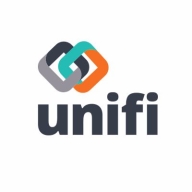

Teradata and Unifi are competing in the data management and analytics space. Teradata seems to have the upper hand with its robust enterprise data processing capabilities and strong analytical functions, whereas Unifi provides better adaptability with agile deployments and user-centric design.
Features: Teradata offers advanced analytics, scalability, and high-performance processing for large data volumes. These features serve as a strong foundation for data-driven decision-making in complex environments. Unifi provides seamless data integration, a user-friendly design, and effective data governance, ensuring quick onboarding and intuitive usage.
Ease of Deployment and Customer Service: Teradata offers a robust deployment model and comprehensive support options ideal for intricate IT ecosystems. It requires a more intensive setup process. Unifi focuses on simplicity and speed in its deployment model with efficient customer service emphasizing usability and fast troubleshooting.
Pricing and ROI: Teradata has a higher setup cost consistent with its enterprise-grade capabilities, justified by substantial ROI in large-scale operations. Unifi offers a more cost-effective solution with faster ROI for organizations seeking immediate value from agile deployments. Teradata's investment may be larger upfront, while Unifi provides an attractive option for cost-efficiency and quick returns.
| Product | Market Share (%) |
|---|---|
| Teradata | 0.8% |
| Unifi | 0.5% |
| Other | 98.7% |


| Company Size | Count |
|---|---|
| Small Business | 26 |
| Midsize Enterprise | 12 |
| Large Enterprise | 49 |
Teradata is a powerful tool for handling substantial data volumes with its parallel processing architecture, supporting both cloud and on-premise environments efficiently. It offers impressive capabilities for fast query processing, data integration, and real-time reporting, making it suitable for diverse industrial applications.
Known for its robust parallel processing capabilities, Teradata effectively manages large datasets and provides adaptable deployment across cloud and on-premise setups. It enhances performance and scalability with features like advanced query tuning, workload management, and strong security. Users appreciate its ease of use and automation features which support real-time data reporting. The optimizer and intelligent partitioning help improve query speed and efficiency, while multi-temperature data management optimizes data handling.
What are the key features of Teradata?In the finance, retail, and government sectors, Teradata is employed for data warehousing, business intelligence, and analytical processing. It handles vast datasets for activities like customer behavior modeling and enterprise data integration. Supporting efficient reporting and analytics, Teradata enhances data storage and processing, whether deployed on-premise or on cloud platforms.
The Unifi Data Platform breaks down the barriers of operational data silos and democratizes information across the enterprise. At the heart of the platform is a comprehensive suite of self-service data discovery and preparation tools to empower business users. Employing machine learning and artificial intelligence technologies, and optimized for the cloud, Unifi predicts what the business user wants to visualize and then connects the resulting data natively to the BI tool for fast, accurate results.
We monitor all Data Integration reviews to prevent fraudulent reviews and keep review quality high. We do not post reviews by company employees or direct competitors. We validate each review for authenticity via cross-reference with LinkedIn, and personal follow-up with the reviewer when necessary.